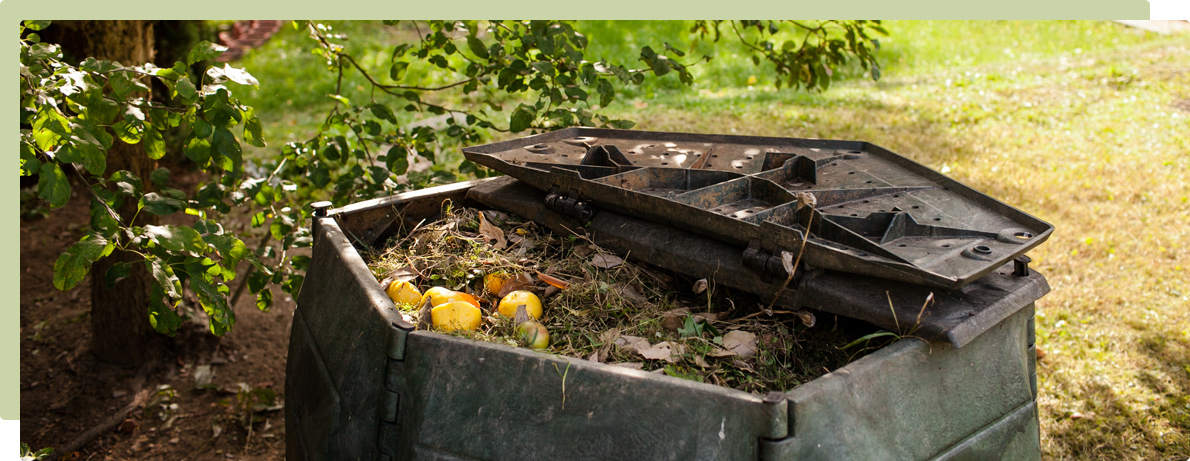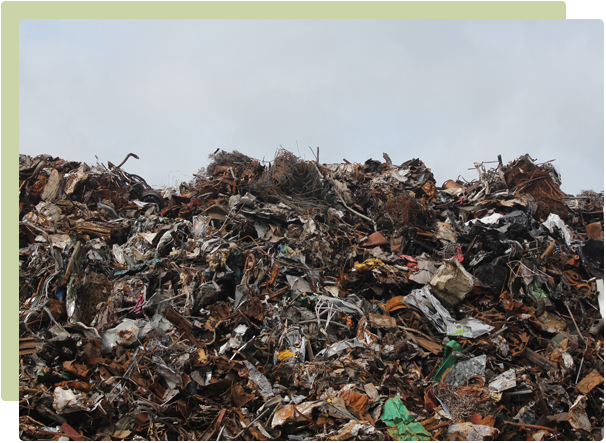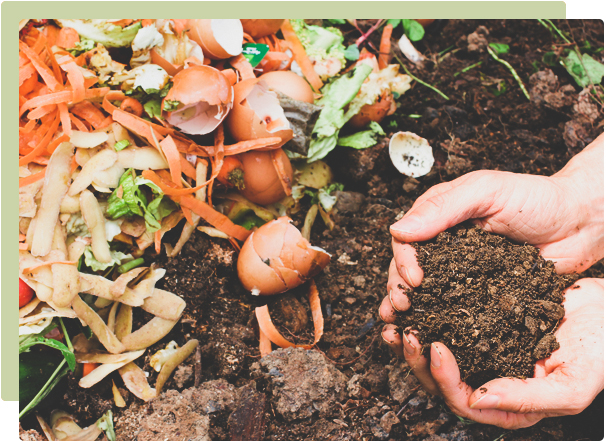Posted by by the Gubba Team
9th Dec 2020
Composting - Why should we do it?

There are several good reasons to compost your food scraps and garden waste and return them to the soil. It doesn’t have to be hard, it certainly doesn’t have to be stinky or take a long time, and it can even be fun! The benefits for you, the environment and your garden are many...read on!
For some, the goal of providing the right nutrients for a lush garden and bumper veggie crops is the key driver. While for others, it's the desire to do their bit and reduce household organic waste from going into landfill. And for a lot of people, it's both reasons - growing your own food and producing your own compost saves money, reconnects you with the land and your food sources, and gives you an element of control over how many chemicals are in your food and garden.
Reducing household organic waste - why is it so important?
It's been estimated that the average Kiwi household throws away the equivalent of 3 shopping trolleys of food waste each year. And it's sad to say that a lot of this is not scraps off the dinner plate, but excess-to-requirement or food that hasn't been stored properly and has gone "off". Add to that green and brown waste from the garden - lawn clippings is a huge one, garden trimmings, fallen leaves, plants pulled out from veggie gardens - it all accumulates.
The problem with tossing this organic material in the bin instead of recycling it is the ever-growing issue of landfills. Nasty piles of vast combinations of rubbish that give off toxins and harmful gases and liquids that leach into the environment and do no good.

When organic material is added to the landfill, it gets compacted down, removing the oxygen that's required for it to effectively decompose. This leads to the production of methane gas - a very potent and much more harmful gas than carbon dioxide from an environmental point of view. And comparatively, where composting can return organic scraps back into the garden in a matter of weeks or months, in the landfill the waste sits stagnant for years becoming a big problem for future generations.
But with a little effort, this organic waste could be turned into nutrient-rich material that feeds the earth and gives back to where it came from. With the right composting set-up your household could reduce and recycle most of your organic waste. Even apartment dwellers can compost kitchen scraps!

What are the main benefits of composting?
Apart from the environmental landfill-reduction aspects, producing compost for the garden is beneficial in many ways. Whether you have a vegetable garden, flower garden, or trees, shrubs and lawn they all require some kind of fertilising to prosper and flourish. Compost is a mild, natural and nutrient-dense fertiliser that provides your garden with all the valuable minerals and goodies it needs to grow.
Composting regularly - with solid matter or a liquid compost - and you'll notice a dramatic improvement in the quality of plant health and growth, size of vegetables and blooms, and also a reduction in disease and pest infestations. Happy, healthy plants are far more resilient to pest attack, reducing the need for chemical interference.
Compost also enhances the condition of your soil. It can improve the structure of your soil, helping to maintain moisture levels and also a healthy ph level. Compost can be mixed into the soil before planting, placed on top or dug in around trees and plants, used as a topical mulch, sprinkled onto lawns, and compost liquids or juice can be diluted and used as a liquid fertiliser.
Even though it's milder than chemical fertilisers or even fresh animal dung, when first completed, compost can still burn new or young plants, so it's best to make sure it's mixed in or diluted well before applying on or around seedlings and new lawns.
These days there are so many options available for home composting - you don't need a lot of space, you don't need to wait for months and months for the end product, and it can be as easy or as complex, as you want it to be. Some types of compositing methods even accommodate a greater range of organic materials like meat, citrus and dairy!
Keen to know more about home composting and which method may suit your place best? Read our article: Home Composting: How easy is it?
View our range of compost bins and accessories.


























